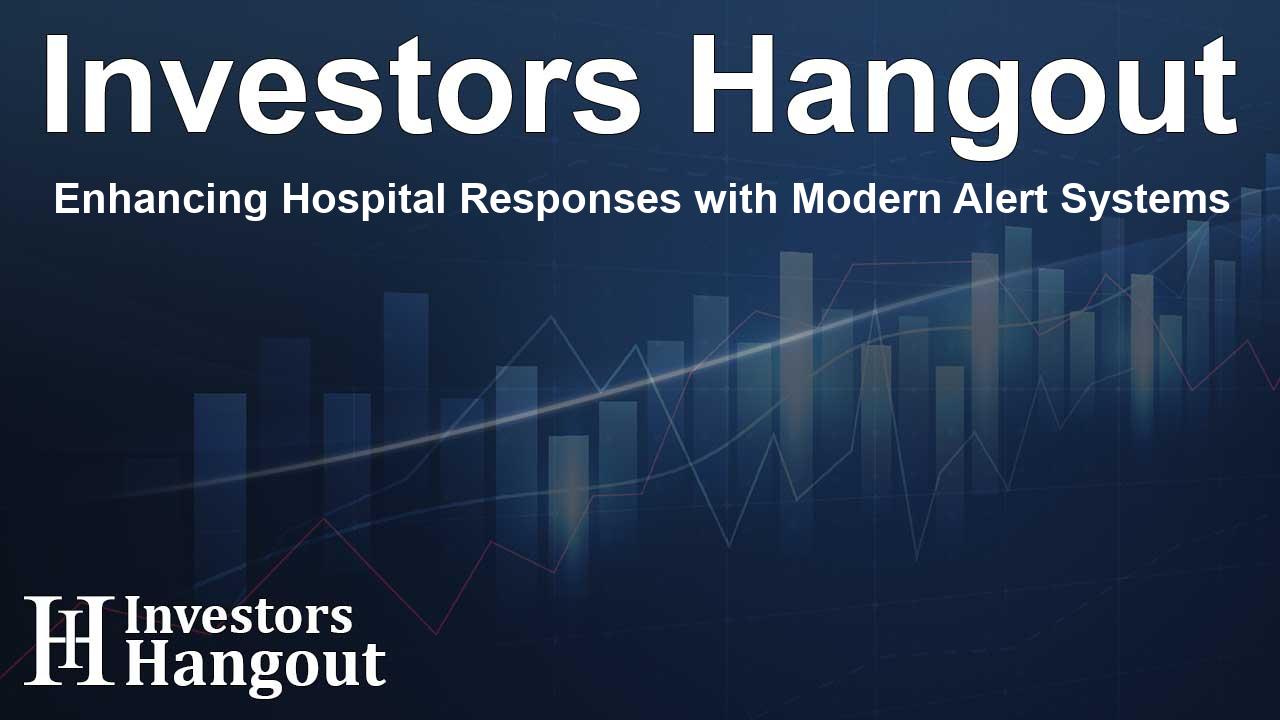Enhancing Hospital Responses with Modern Alert Systems

Enhancing Hospital Responses with Modern Alert Systems
In light of recent calamities, hospitals across various regions are increasingly relying on advanced alert systems to improve their emergency response efforts. The proactive use of internet alerts has become essential in maintaining safety during severe weather disruptions. This shift is particularly crucial following the threats presented by recent hurricanes, which have prompted healthcare administrators to prioritize timely communication and situational awareness.
The Need for Immediate Communication
As weather patterns become more unpredictable, hospitals are faced with the necessity to keep their staff informed and prepared. Over recent weeks, many healthcare facilities activated their emergency alert systems to disseminate critical information concerning incoming storms. This includes notifications about potential evacuations and instructions for protecting patients and staff. By utilizing web-based alerts and mobile notifications, healthcare providers can ensure that life-saving information reaches all necessary personnel promptly.
Adapting to New Challenges
In addition to weather-related threats, hospitals now contend with rising cybersecurity incidents and active shooter scenarios. Kevin Foote, CEO of FastCommand, comments, "The landscape of hospital management is shifting. With the increase in cyber threats and the unpredictability of extreme weather events, it is essential for healthcare institutions to enhance their emergency alert systems to minimize risks and safeguard lives."
Implementing Comprehensive Alert Platforms
FastCommand has stepped up efforts to assist hospitals in setting up alert command centers, particularly for regions affected by recent disasters. The company focuses on integrating effective communication strategies that coordinate relief efforts in real time. This strategic planning is vital in ensuring that healthcare facilities can maintain stability and continue operations despite potential interruptions.
Streamlining Volunteer Coordination
To further assist communities in recovery processes, FastCommand is working on systems that aid volunteer coordination and information management. Effective alerts enable quicker preparation times for responders, helping to streamline logistics and optimize the deployment of resources during emergencies. This approach not only enhances the overall response times but also provides vital information regarding resource availability and action instructions to community members.
Building Trust Through Reliable Communication
As healthcare institutions prepare for the future, they are cognizant of the fact that reliable communication channels are paramount. FastCommand's web alert technologies are engineered to withstand high traffic volumes typically associated with emergencies, allowing hospitals to avoid system overloads. This innovation ensures that essential information can reach staff and community members consistently, enhancing overall responsiveness during crises.
Benefits of Advanced Alert Systems
By employing these modern solutions, hospitals can significantly enhance their ability to protect patients and staff alike. This is not merely about responding to present emergencies but also about creating a culture of preparedness. As emergencies arise more frequently, the need for hospitals to integrate robust alert systems into their operational framework becomes ever more apparent. These systems offer advanced functionalities that can adapt to various scenarios, ensuring hospitals remain proactive rather than reactive.
Conclusion
Overall, the emerging technologies in hospital communication signify a fundamental shift toward improved safety protocols and emergency management strategies. The commitment to adopting these alert systems highlights the crucial role they play in securing lives and facilitating efficient responses to disasters. As hospitals gradually implement these systems, they foster a more resilient healthcare environment ready to face future challenges.
Frequently Asked Questions
What role do alert systems play in hospitals?
Alert systems enhance communication during emergencies, ensuring timely information delivery to staff for effective response.
Why are hospitals focusing on cyber-command platforms?
Increasing cyber threats and unpredictable weather events necessitate hospitals to strengthen communication systems and minimize risks.
How does FastCommand contribute to hospital preparedness?
FastCommand provides innovative alert technologies and command centers that help hospitals coordinate responses during emergencies.
What are the benefits of effective communication during crises?
Effective communication mitigates risks, ensures coordinated responses, and ultimately saves lives amid disasters.
How can hospitals ensure communication remains reliable?
By employing robust web alert technologies, hospitals can maintain steady communication, even during high-demand situations.
About Investors Hangout
Investors Hangout is a leading online stock forum for financial discussion and learning, offering a wide range of free tools and resources. It draws in traders of all levels, who exchange market knowledge, investigate trading tactics, and keep an eye on industry developments in real time. Featuring financial articles, stock message boards, quotes, charts, company profiles, and live news updates. Through cooperative learning and a wealth of informational resources, it helps users from novices creating their first portfolios to experts honing their techniques. Join Investors Hangout today: https://investorshangout.com/
Disclaimer: The content of this article is solely for general informational purposes only; it does not represent legal, financial, or investment advice. Investors Hangout does not offer financial advice; the author is not a licensed financial advisor. Consult a qualified advisor before making any financial or investment decisions based on this article. The author's interpretation of publicly available data shapes the opinions presented here; as a result, they should not be taken as advice to purchase, sell, or hold any securities mentioned or any other investments. The author does not guarantee the accuracy, completeness, or timeliness of any material, providing it "as is." Information and market conditions may change; past performance is not indicative of future outcomes. If any of the material offered here is inaccurate, please contact us for corrections.